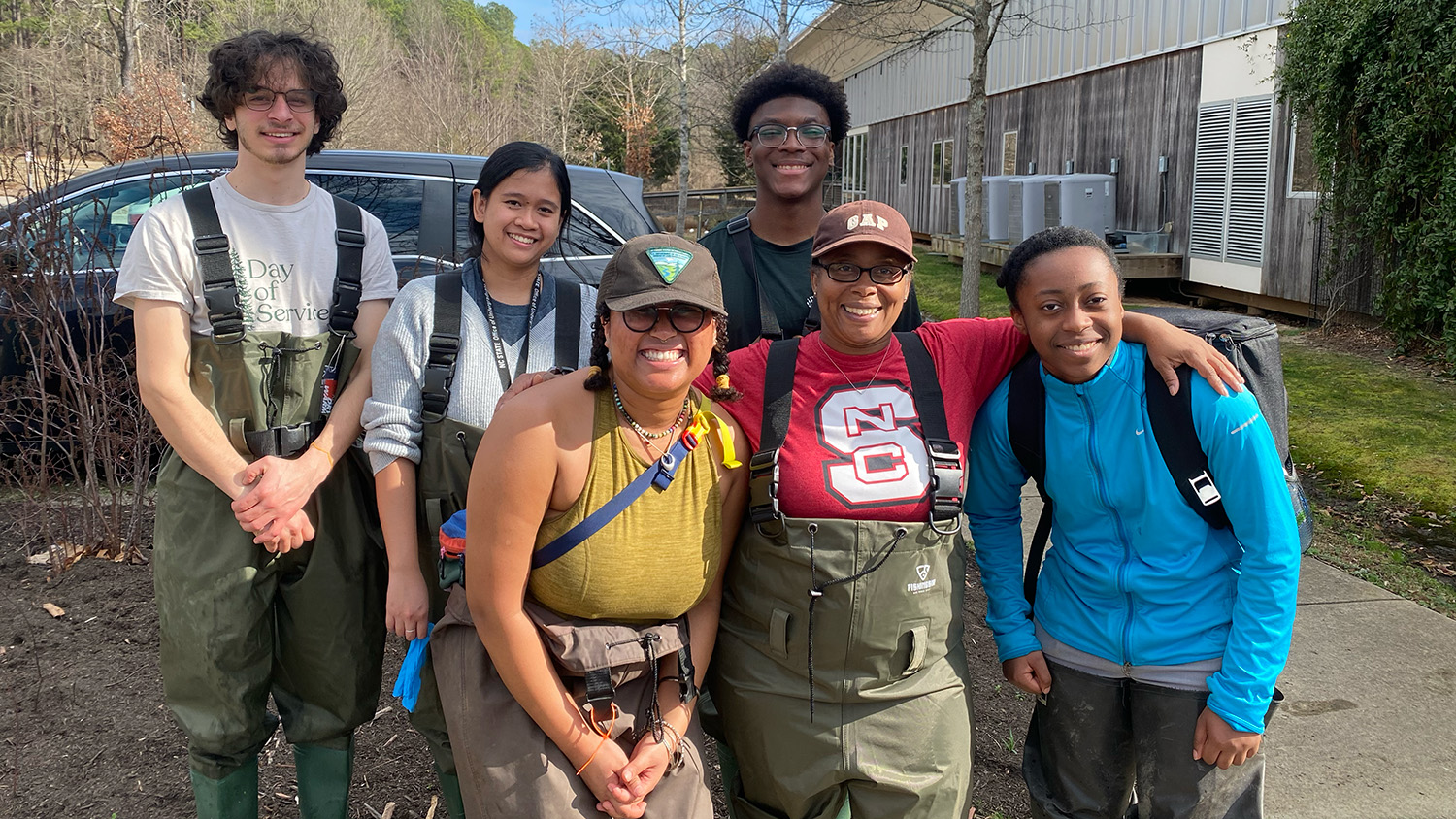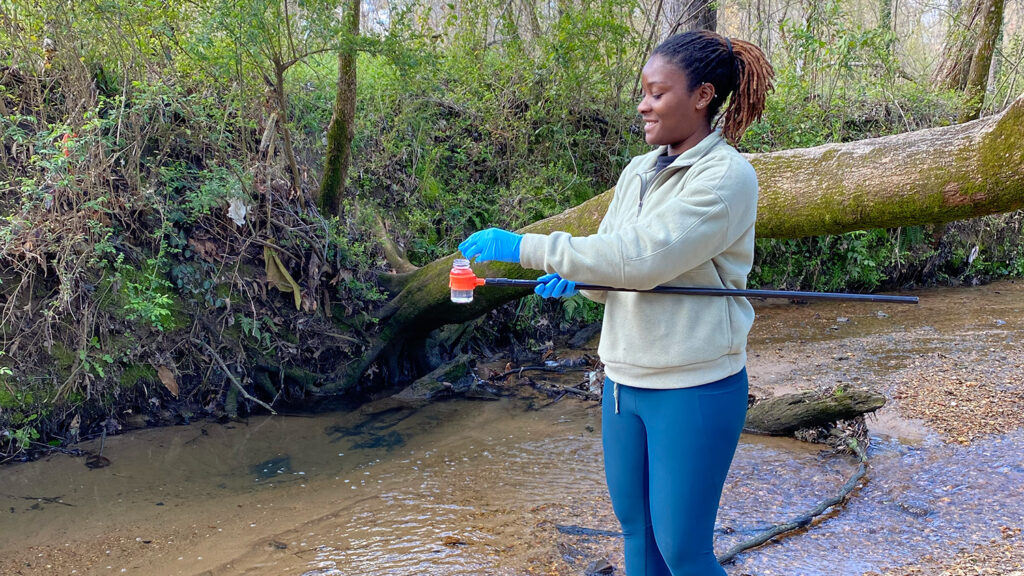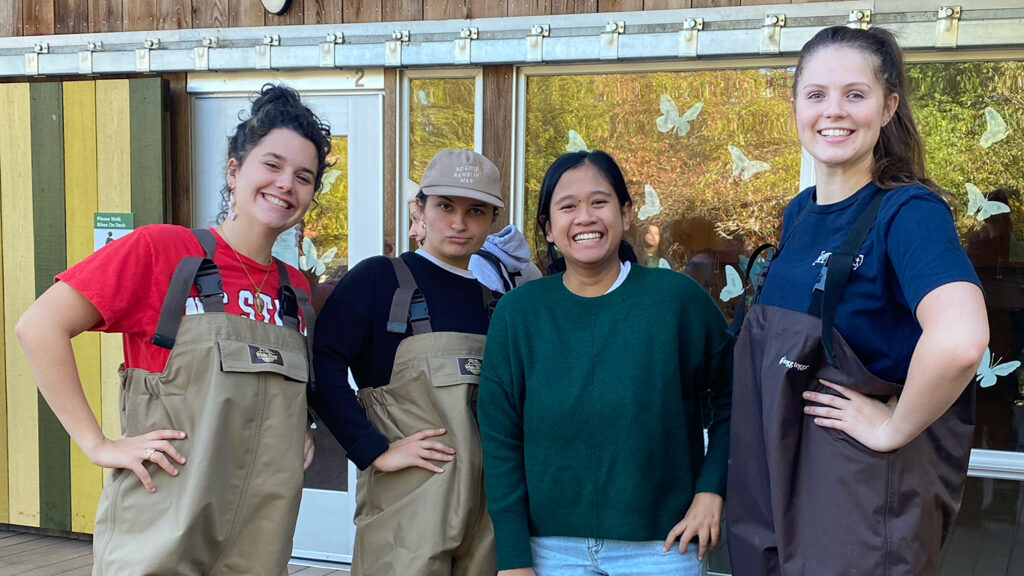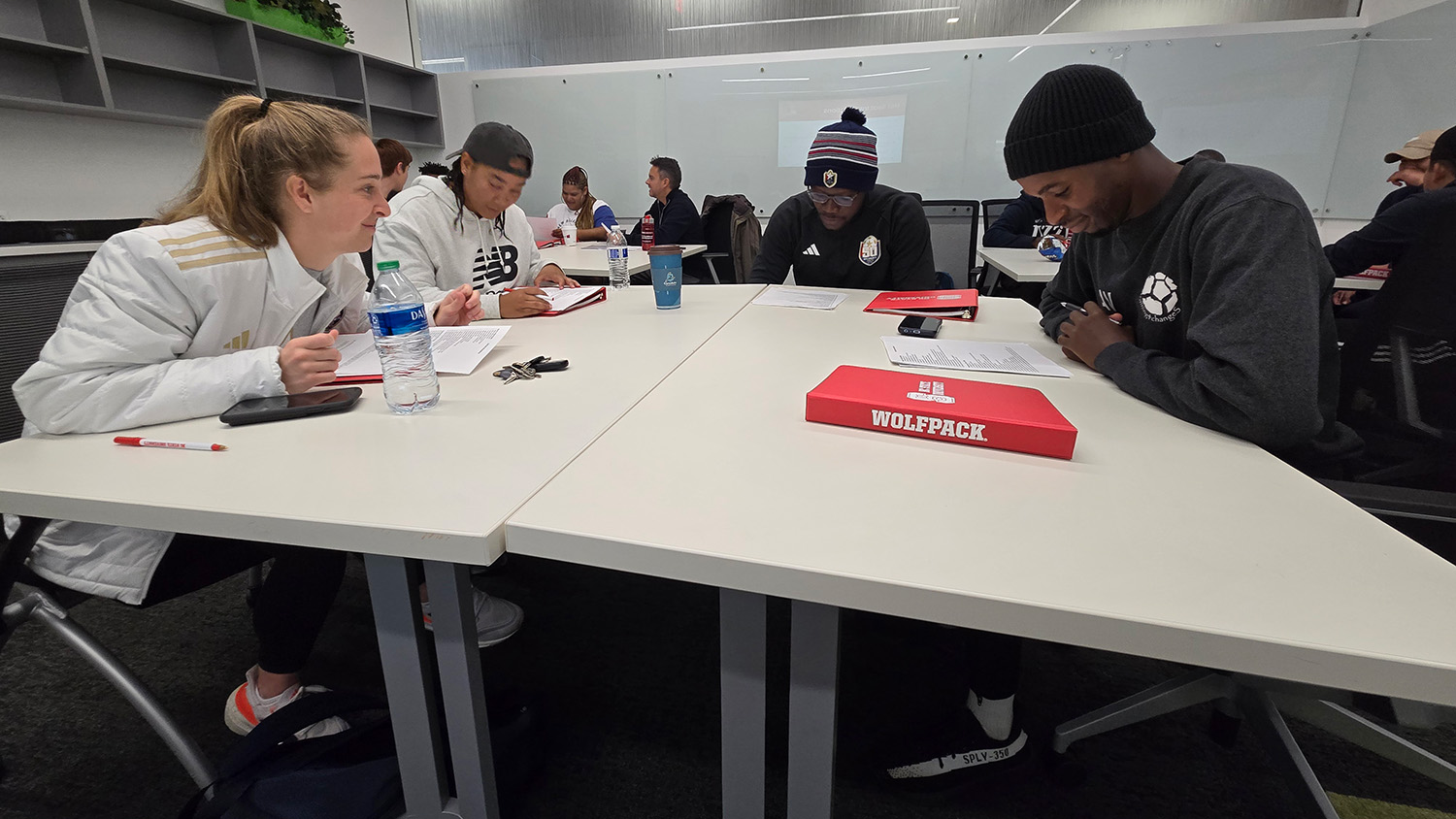Training the Next Generation of Scientists to Tackle Water Pollution
NC State professor Angela Allen is training students to conduct water quality testing and monitoring through the Environmental Resource Clinic Student Training Program.

Drinking water is essential to human health, from regulating the body’s temperature to eliminating toxins. But when water becomes polluted, it can cause serious problems — from gastrointestinal illnesses to cancer.
NC State professor Angela Allen launched the Environmental Resource Clinic Student Training Program to train undergraduate and graduate students to identify and address drinking water quality issues.
“Students are trained to engage with communities and provide technical support for real-world water quality challenges as part of their education,” said Allen, an assistant teaching professor in the Department of Forestry and Environmental Resources.
The Environmental Resource Clinic Student Training Program is open to all NC State students interested in learning about water quality monitoring and research. More than 20 students have participated in research, mentorship and community outreach opportunities so far.
All students complete online safety training before learning to use a variety of tools to determine water quality parameters and pollution. They also learn to communicate their findings with communities and other stakeholders.
“We work immediately with communities. They are the backbone of the work we do,” Allen said. “Students are introduced to these stakeholders so that they can get a sense of the importance of what we do and why we do it.”

Much of the work completed so far has focused on addressing ongoing water quality challenges in the Walnut Creek watershed, specifically in the historic neighborhoods of Rochester Heights and Biltmore Hills.
The predominantly African-American neighborhoods often experience flooding as polluted stormwater from downtown Raleigh and Interstate 40 flows into Little Rock Creek, a tributary of the Walnut Creek watershed.
Walnut Creek feeds into the Neuse River, which provides drinking water for thousands of North Carolinians. It has long been adversely affected by sedimentation and bacterial contamination.
Local organizations, government agencies and other stakeholders, including NC State researchers, have worked together over the past decade to mitigate flooding and pollution in southeast Raleigh.
Allen’s involvement began with a request from Stacie Hagwood, then manager of Walnut Creek Wetland Park, for water quality monitoring. Her program has since expanded to include collaborations with Partners for Environmental Justice, the North Carolina Department of Environmental Quality, among others.
“Working to characterize water quality in an area that has been disproportionately impacted by urban development gives our students an opportunity to positively contribute to the health and well-being of our community,” Allen said.
She added, “We are led by the needs of those in our community, and having knowledge about their concerns allows us to provide the needed resources to arrive at meaningful solutions.”
Allen and her students have not only monitored water quality, but they’ve also partnered with collaborators to develop funding proposals for Walnut Creek improvement projects and to participate in outreach activities.
Andrea Putri, a senior majoring in environmental technology and management at NC State, has participated in the Environmental Resource Clinic Student Training Program since summer 2023 as an undergraduate research assistant.
Putri said the program has provided her with valuable skills and knowledge that will contribute to future success. It has not only improved her ability to think critically and collaborate with others, but it has also improved her ability to manage her time appropriately and communicate science to the public.

“My participation in the program has been a rewarding experience,” Putri said. “I can say it has helped me gain insight into the topics of environmental justice, water quality, leadership skills, and how to become a lifelong learner.”
She added that her participation in the program has even helped her to further articulate her career goals. “My initial plan after graduation was to pursue a career in water and environmental management. But after this experience, I have also started thinking about continuing my academic studies by getting a master’s degree or doctorate degree.”
Recently, the North Carolina Source Water Collaborative awarded Allen the 2024 Source Water Protection Education Award for her contributions through the Environmental Resource Clinic Student Training Program.
The Source Water Protection Award acknowledges individuals and/or groups that demonstrate innovative, proactive, and collaborative solutions to protect North Carolina’s drinking water and the watersheds that support it.
Going forward, Allen is seeking funding to continue the program in order to meet increased demand. The program has seen exponential growth since its launch, with more and more students wanting to participate.
“Students yearn for more experiences outside the classroom and want to learn about research,” Allen said. “This program does just that.”
If you’re interested in joining or collaborating with the Environmental Resource Clinic Student Training Program, please contact Angela Allen at amallen2@ncsu.edu.
- Categories:


